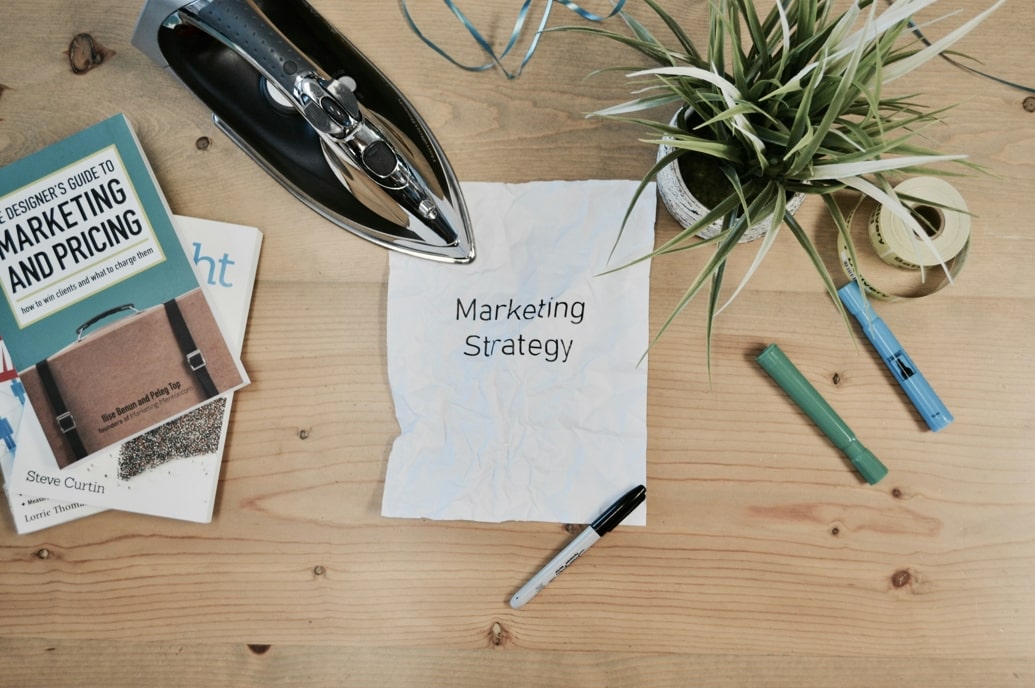Marketing strategies are constantly evolving and it’s hard to keep up sometimes. Before you learn how to implement trending marketing strategies, though, it’s essential to establish actionable CRM funnels. Understanding how to manage customer relationships is crucial for success. Whatever business you are in, it’s always human business.
A CRM funnel helps businesses visualize and track the customer journey. From the moment a potential lead becomes aware of your brand to the point of conversion and beyond. In this article, we’ll outline different types of CRM funnels in the hopes of educating more businesses on how to enhance their marketing efforts. Whether you are a start-up or looking to revive your current marketing strategy, leveraging CRM funnels can provide you with a clearer path to success.
What is a CRM funnel
A CRM funnel is a model that outlines the stages a potential customer goes through in their relationship with a business. From initial awareness to making a purchase and beyond. The method helps businesses visualize and track the customer journey. Allowing them to understand where customers might engage or drop off.
Typically, a CRM funnel consists of several key stages: awareness, consideration, decision, and retention. Each stage represents a different level of engagement and interaction with the brand. By analyzing customer behavior at these stages, businesses can tailor their marketing efforts to better meet customer needs, improving the chances of conversion.
Using a CRM funnel enables businesses to effectively manage leads and customer interactions, ensuring that marketing strategies are aligned with customer behavior. This structured approach helps in optimizing resources, enhancing customer experiences, and ultimately driving growth.
Different types of CRM funnels for marketing

Webinar funnel
A webinar funnel is designed to attract and engage potential customers. By means of offering valuable content through a live or recorded webinar. The goal is to educate attendees on a relevant topic, establish your brand’s expertise, and guide them toward a product or service solution by the end of the session.
Typically, a webinar funnel starts with a promotion phase, where invitations are sent out via email, social media, or ads. Once people register, they receive follow-up reminders and resources to keep them interested. Valuable content is provided to build trust and credibility, often followed by a call-to-action, such as signing up for a service or purchasing a product.
Webinar funnels are particularly effective for generating qualified leads, as attendees have shown interest by registering and engaging with the content. This type of funnel can shorten the sales cycle by moving leads from awareness to decision-making quickly, all within the span of a single event.
Email marketing funnel
An email marketing funnel is a step-by-step process designed to guide potential customers through a series of targeted emails that move them closer to making a purchase. This funnel typically begins when a lead opts into an email list, often in exchange for something of value, like a discount, free guide, or exclusive content.
Once in the funnel, subscribers receive a sequence of emails that introduce the brand, address common questions, and provide value through helpful tips or relevant information. Each email is crafted to gradually build trust, keep the audience engaged, and showcase the benefits of the product or service. Toward the end of the funnel will also include a clear CTA, such as a special offer, product recommendation, or invitation to connect with a sales representative.
Email marketing funnels are effective for nurturing leads over time, allowing businesses to stay top of mind with potential customers while delivering relevant, timely content that guides them through the decision-making process at their own pace.
See SMO in action
Try our solutions with zero commitment
Video marketing funnel
A video marketing funnel uses video content to engage and convert leads at each stage of the customer journey. This funnel often begins with awareness-focused videos. Such as short social media clips or YouTube ads that introduce the brand and capture attention. These videos are designed to spark initial interest and encourage viewers to learn more.
As leads move through the funnel, they encounter consideration-phase videos, such as product demos, tutorials, or case studies. These videos aim to build trust, answer questions, and highlight how the product or service solves a specific problem. By the time leads reach the decision stage, they’re presented with persuasive videos, like customer testimonials or limited-time offers, that help push them toward making a purchase.
Video marketing funnels are effective because they provide engaging, easily consumable content that resonates with viewers. Videos can communicate complex information quickly. They help your customers understand and connect with your brand easier.
Lead generation funnel
A lead generation funnel is designed to attract potential customers. They turn anonymous visitors into identifiable leads. This funnel typically starts with creating interest through blog posts, social media content, ads, or other promotional activities that offer valuable information and drive traffic to a landing page.
On the landing page, visitors are encouraged to sign up by offering something in return, like a free ebook, checklist, discount, or other resources. Once a lead opts in, they enter the CRM system, where they receive targeted follow-ups, often through automated email sequences. These emails are crafted to nurture the lead by providing useful content and gradually introducing the brand’s products or services.
Lead generation funnels help businesses build a pool of engaged contacts who are interested in what they offer. By effectively capturing and nurturing leads, this funnel serves as a foundation for guiding potential customers toward the next stages in the customer journey.
Lead magnet funnel
A lead magnet funnel is a type of CRM funnel focused on attracting potential customers by offering a valuable resource, or “lead magnet,” in exchange for their contact information. This lead magnet could be a free ebook, guide, template, webinar, or any other resource. As long as they resolve a problem or provides valuable insights to the target audience.
The funnel usually starts with promoting the lead magnet through social media, ads, blog posts, or email campaigns. They aim to drive traffic to a landing page. On this landing page, visitors are asked to provide their contact details to access the resource. Once they sign up, they enter the CRM system, allowing the business to follow up with targeted emails that build trust and nurture the lead over time.
Lead magnet funnels are effective because they attract high-quality leads. The target audiences are generally more interested in your offerings. By providing immediate value, this type of funnel helps establish credibility with potential customers. Increasing the likelihood of converting them into loyal customers.
Social media funnel
A social media marketing funnel leverages social platforms to guide potential customers from awareness to conversion. This funnel begins by creating engaging content—such as posts, videos, or stories—that grabs attention and introduces new audiences to the brand. Platforms like Instagram, Facebook, LinkedIn, and TikTok are commonly used to build awareness and drive traffic.
As followers show interest, businesses use targeted posts, ads, or retargeting campaigns to keep the brand top of mind and encourage further interaction. Some brands may invite users to join a private group, sign up for a webinar, or visit a landing page for a special offer, moving them further into the funnel.
In the final stages, direct calls-to-action, like limited-time offers or exclusive discounts, are shared to motivate conversions. Social media marketing funnels are especially effective because they foster direct engagement and allow businesses to meet potential customers where they spend their time, creating a more personal and interactive journey.
How to implement a CRM funnel

Implementing a CRM funnel involves several key steps that ensure it effectively guides potential customers through their journey. Here’s a straightforward approach to setting up your CRM funnel:
- Define your objectives. Start by clearly identifying the goals of your CRM funnel. Are you looking to generate leads, increase sales, or improve customer retention? Knowing your objectives will help shape the funnel’s design and content.
- Map out customer stages: Outline the stages of your funnel based on the customer journey. Common stages include awareness, consideration, decision, and retention. Understanding how your customers progress through these stages will inform the types of content and engagement strategies you need.
- Choose the right tools: Select a CRM system that suits your business needs and integrates well with other marketing tools. Look for features that allow you to track customer interactions, automate communication, and analyze performance.
- Create valuable content: Develop relevant content for each stage of the funnel. This could include blog posts, videos, webinars, email sequences, or lead magnets. Ensure your content addresses the needs and pain points of your target audience.
- Promote your funnel: Use various marketing channels—such as social media, email marketing, and paid ads—to drive traffic to your funnel. Promote your lead magnets and valuable content to attract potential customers and encourage them to enter the funnel.
- Automate follow-ups: Set up automated follow-up sequences that nurture leads based on their interactions. Personalize these communications to build trust and keep potential customers engaged throughout their journey.
- Analyze and optimize: Regularly monitor the performance of your CRM funnel using analytics tools. Assess metrics like conversion rates, open rates, and engagement levels to identify areas for improvement. Use this data to refine your strategies and enhance the customer experience continuously.
By following these steps, businesses can effectively implement a CRM funnel that streamlines the customer journey, improves engagement, and drives conversions.
See SMO in action
Try our solutions with zero commitment

Wrapping up CRM funnels
Implementing a CRM funnel can significantly enhance your marketing strategy. It provides a structured approach to guiding potential customers through their journey. CRM funnels let you tailor your efforts to meet the unique needs of your audience.
As you implement your CRM funnel, remember to define your objectives. Create valuable content, and continuously analyze performance to optimize the customer experience. By doing so, you can build stronger relationships with your leads, improve engagement, and ultimately drive conversions.
Effectively utilizing CRM funnels is essential for businesses aiming to thrive and grow. Equally important is a business management tool that equips your team with the necessary resources. A customer service platform, combined with team-building and management tools like SMO, can significantly support your business. SMO offers a next-gen AI chatbot designed to keep you connected with your customers. Explore our services today.


